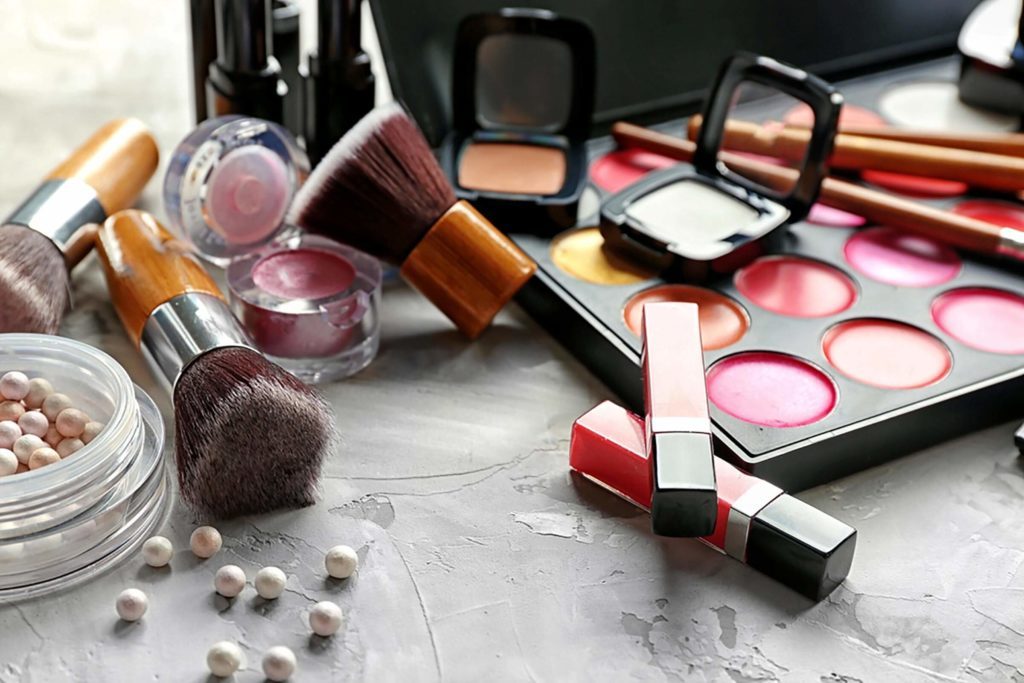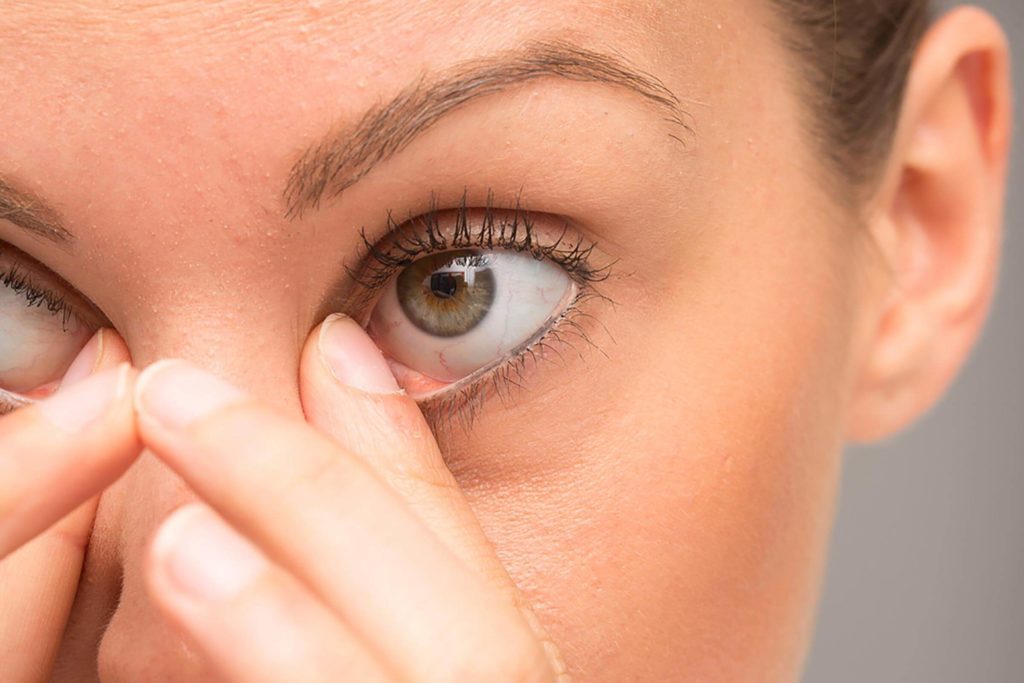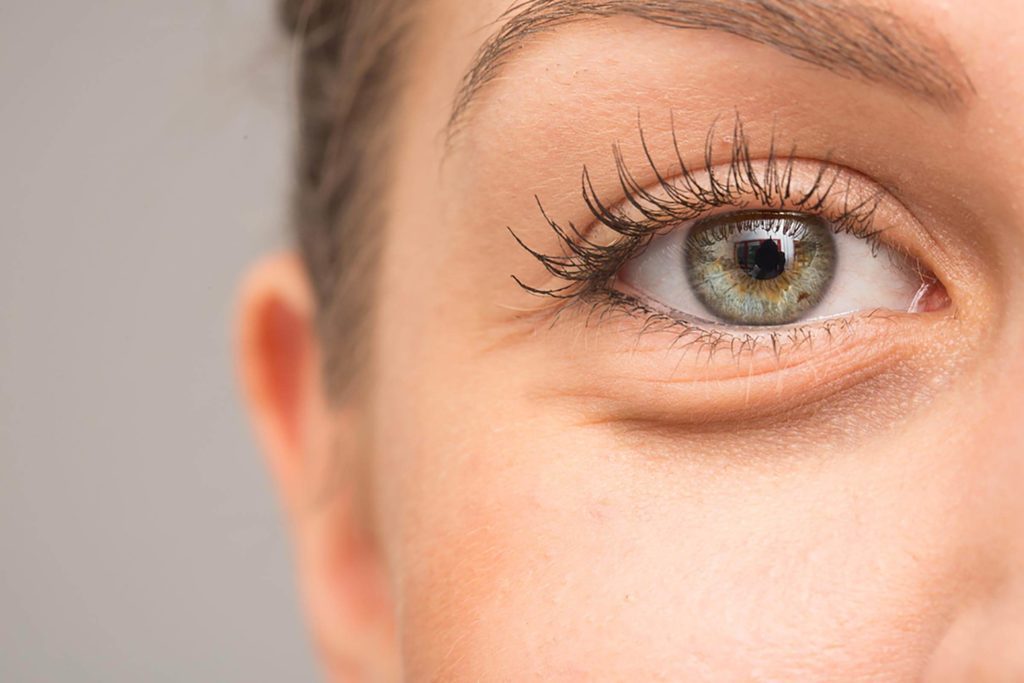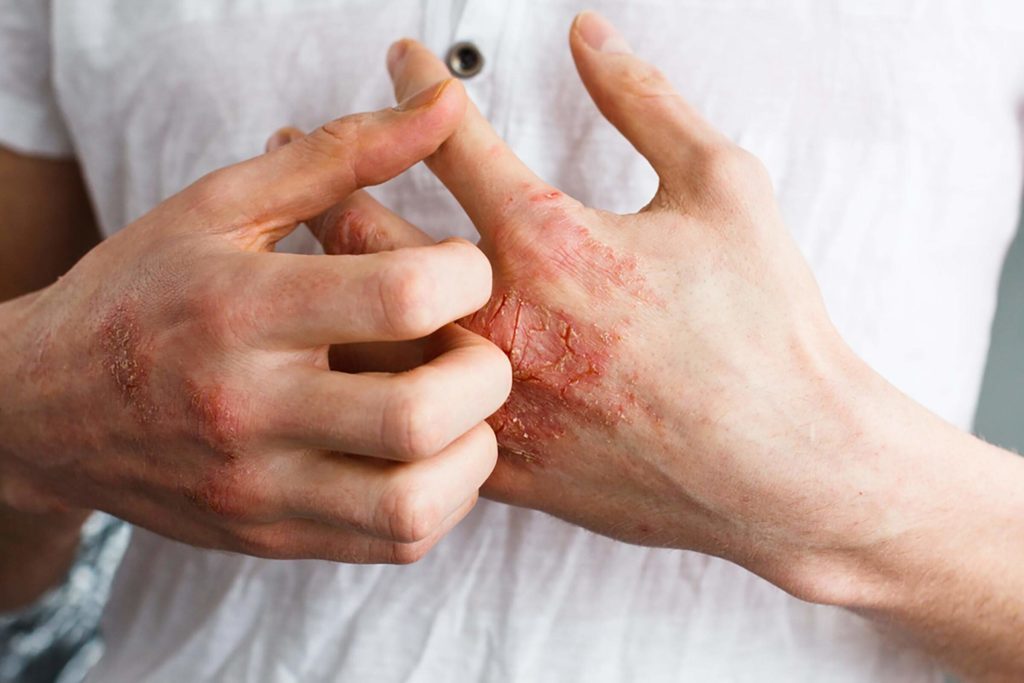![[feature]](https://blogger.googleusercontent.com/img/b/R29vZ2xl/AVvXsEhJm1MNdeME9CTnmCzr_9S0__l0jbD3f6rlgCmIq5Xldj1HAy_kNL_Q_vY5yh2dFTK0oWHX5HwQ3XedJW_y039dbbl-VFXfab0F7R-98nvMrH_kvto7eEYvHPN-MlKWkuCJOgxyQr0Z9Swz/s1600/eliminar-ojeras.jpg)
Lack of sleep isn't the only thing to blame for those pesky under eye circles. Learn how to put a stop to them for good.
[post_ads_2]
Sleeping on your side or belly
 |
While most people believe lack of sleep is the solitary reason behind dark circles under eyes, the way
you sleep could be the true culprit. If your sleeping position tends to
be lying on your side or your belly, your face will fold into the
pillow and put strain around your eyes. Harold Lancer, MD, a celebrity
dermatologist, notes, "Try to sleep on your back, which doesn't just
benefit your face, but also prevents wrinkles from potentially forming
on your chest. You may also want to consider sleeping with an extra
pillow when your eyes are extremely puffy, since elevating your head
will get the fluid to move away from your lids." Find out the best sleep positions for 11 common health problems.
Sunlight
 |
If
your under eye area happens to look more brownish in tone, it may be
due to pigmentation. "The skin around the eyes is also very sensitive to
hydration or lack thereof and is also constantly exposed the
environment. Therefore, it is subject to sun damage," reports Joshua Zuckerman,
MD, board-certified plastic surgeon. Because the sun signals melanin
production, sun exposure will aggravate the appearance of crow's feet
and dark circles. As a solution, be sure to invest in a good pair of
sunglasses that are labeled 100 percent UV protection or UV 400
protection to efficiently blocks the sun's rays. (This is how to pick out the best sunglasses for your face shape).
Too much salt or caffeine
 |
You
may notice that if you indulge in a salt-heavy meal before you go to
bed, you'll wake up with bags under your eyes. Certain foods with high
levels of sodium and caffeine content will cause your body to retain
water, aggravating the skin under the eyes and making them appear
darker. If you find it too hard to sacrifice the coffee (trust us, we
understand), Ami Mallon, global corporate educator for Osmosis Skincare,
recommends counteracting this condition with ingredients like
Niacinamide (a form of vitamin B). "This assists with increasing blood
flow to areas that may have formerly been stagnant. Niacinamide also has
anti-inflammatory and antioxidant benefits," she says. "Bearberry
extract is also a wonderful and natural skin lightener and can help
brighten under your eyes." Here are other signs you're eating too much sodium.
Makeup products
 |
Makeup
is supposed to cover up our dark circles under eyes, right? While it
may seem counterintuitive, using a bad product can actually irritate
your skin and lead to worsened circles. According to Rebecca Lee, RN and
founder of the natural health resource, RemediesForMe.com,
"Makeup is supposed to hide discolorations and imperfections but if
your specific makeup brand is not well tolerated by the body, it can
actually cause the exact opposite. Whether it's an eyeliner, mascara,
concealer, or a powder, it could cause irritation or an allergic
reaction." To stay on the safe side, if you notice your under eye area
looking particularly rough after using a new product, steer clear. (There are 18 ways your makeup might be making you sick).
Scratching or rubbing your eyes
 |
Itching,
rubbing, scratching, you name it: all of it can lead to dark circles
under eyes. If you happen to rub them instinctively in the middle of the
night and are in dire need of an immediate fix, Tsippora Shainhouse,
MD, board-certified dermatologist in Beverly Hills, recommends
hemorrhoid creams to temporarily shrink the vessels; it's a handy
modeling trick used before photo shoots. If you have a bit more time on
your hands, consider cold cucumbers on the eyes—they're high in sodium
and will draw out water from under the skin.
Bad genetics
 |
Unfortunately,
sometimes dark circles can just be hereditary (and is actually one of
the most common causes of them). If the skin around your eyes is
fragile, transparent, and extremely thin, it will make it easy for blood
to show through. Dark circles from bad genes will tend to show more as a
bluish tint, and may get worse with age due to the loss of subcutaneous
fat. "There are three types of enlarged blood vessels: they can be
purple, blue, or pink," says Neal Schultz, MD, a dermatologist based in New York City, host of DermTV.com and creator of BeautyRx by Dr. Schultz.
"And there are two types of shadows that cause them: One shadow comes
from the bulge of fat from the lower lid as we get older and the other
comes from fine wrinkling of the lower lid skin, which appears as
parallel lines. When light hits them from above, it causes shadows just
like light hitting open flat, parallel blinds." If you were dealt a bad
hand of genetic codes, your best bet may be to seek out your
dermatologist so they can help you treat them as effectively as
possible. Here are 12 other ways your mom's health can affect you.
[post_ads_2]
Too many hours in front of the computer
 |
Staring
at a computer all day can put a lot of stress on the blood vessels
around the eyes, which are forced to work harder without proper rest.
According to Maricela Lewis Watson of The Shoreditch Spa,
"When the blood vessels get bigger around your eyes, it makes the skin
surrounding them look darker. This happens when the body produces more
cortisol to combat the added stress that the eye muscles are under." If
you're in a job that mandates hours spent in front of a computer screen,
frequently take small breaks—even if for 30 seconds every hour—to look
away and give your eyes some time to recover. (This is how to help your body recover from a day of sitting).
Fluid retention
 |
Fluid
retention will cause blood to pool underneath your eyes and produce a
darkened appearance. According to Mahmoud Khattab, MD, of Precision MD,
"There are many reasons your body might retain fluids: hormone levels
fluctuating temporarily with your menstrual cycle or aging, a high salt
diet, medications that encourage fluid retention, and changes in the
weather (particularly hot, humid days)." Other reasons may include
chronic disorders that increase lower lid sagging by increasing water
retention such as thyroid disease, kidney disease, and heart ailments.
If you do happen to notice your under eye circles worsening after taking
a new medication, consult your doctor for a prescription change.
[post_ads_2]
Allergies
 |
Allergic
reactions, dryness, and eczema symptoms as some of the most common
symptoms that lead to patients' dark circles, shares Lee. "Allergies
cause the body to release histamines that cause blood vessels to dilate.
Excessive rubbing to soothe itchiness or irritation can also cause
increased inflammation, swelling, and broken blood vessels around the
eye." If you find yourself suffering from allergies, try taking an
antihistamine or taking pseudoephedrine to reduce swelling. (Here are 12 other natural allergy remedies that are sure to provide relief).
























